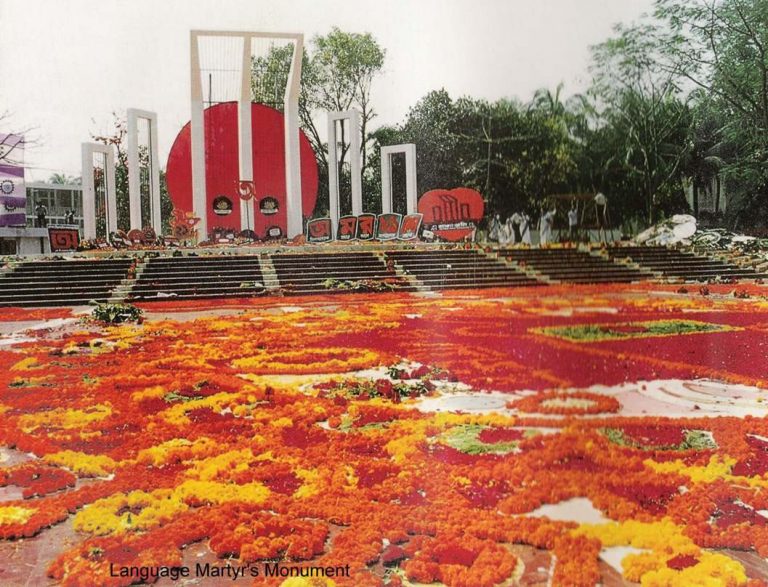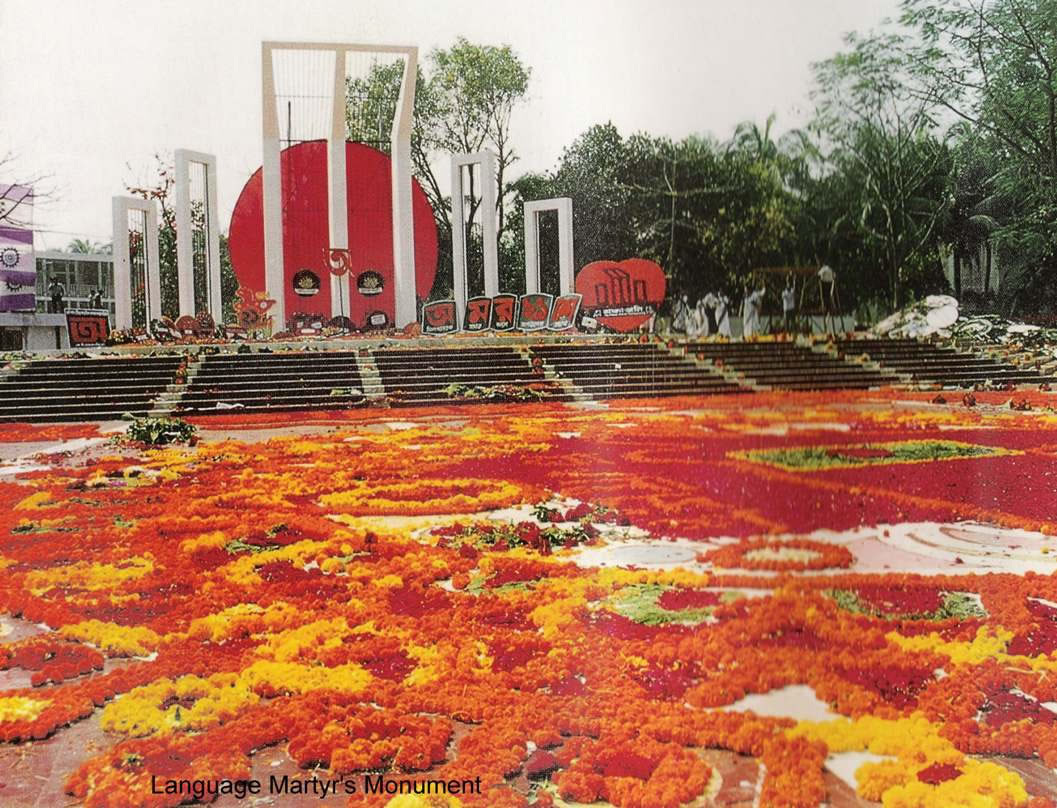
 Dhirendranath Dutta rose in the Pakistan Constituent Assembly on 25 February 1948 in defence of Bangla. He was shouted down by Liaquat Ali Khan.
Dhirendranath Dutta rose in the Pakistan Constituent Assembly on 25 February 1948 in defence of Bangla. He was shouted down by Liaquat Ali Khan.
By Syed Badrul Ahsan
Dhirendranath Dutta rose in the Pakistan Constituent Assembly on 25 February 1948 in defence of Bangla. He was shouted down by Liaquat Ali Khan. On 21 March 1948, speaking in Dhaka, Pakistan’s founder Mohammad Ali Jinnah, in clear disregard of Bengali sentiments, asserted that Urdu alone would be the state language of Pakistan.
The road to disaster was beginning to be paved.
Observe Ratan Lal Chakrabarty’s work, Bhasha Andoloner Dolilpotro (Documents of the Language Movement), a revealing record of the happenings leading to Ekushey 1952 and beyond.
Prior to the tragic happenings of February 1952, elements unwilling to acknowledge the primacy of the Bengali language in Pakistan went all the way voicing their determination to keep what they called the Pakistan ideology intact. The consequences were sometimes hilarious. There was the Aga Khan, with his bizarre suggestion that as a way of putting an end to the language controversy, Pakistan should adopt Arabic as its state language. In the process, he went for some defence of Urdu but had absolutely no sympathy for Bangla.
Note some editorial comments by newspapers at the time, February 1951 (a year before the tragedy occurred), as they appear in Chakrabarty’s work.
In its editorial on 13 February 1951, the Pakistan Observer had this to say:
‘We are glad that the Aga Khan has done some plain speaking, at the risk of being misunderstood, regarding the language controversy. Though we do not think that making Arabic the state language of Pakistan is a feasible proposition still he has done a service by boldly attacking some false notions about Urdu. . . The only wise course under the circumstances is to adopt both Bengali and Urdu as the state language(s) of Pakistan.’
The Morning News, on 14 February 1951, was tongue-in-cheek in its response to the Aga Khan’s suggestion:
‘All the three reasons that the Aga Khan has advanced for Arabic and against Urdu appear to be on the face of them fallacious. . . We mean no disrespect to the Aga Khan when we respectfully differ from (sic) him. Arabic has not been able to unite the Arabs themselves. How can it unite Pakistan with the Arab world?’
There was, however, the Azad, effusive in its appreciation of the Aga Khan’s views. On 13 February 1951, it wrote:
‘His proposal is not new. It has got many supporters both in eastern and western Pakistan . . . It therefore appears that the movement in support of Arabic is gaining ground. The leaders of the country should therefore go deeply into this matter.’
On 18 April 1951, the Pakistan Observer, reacting to pro-Urdu suggestions, was scathing in its comment:
‘Maulana Akram Khan is reported to have said at the Urdu Conference that those who oppose Urdu in East Bengal are the enemies of Islam. Presumably he includes among those ‘enemies’ those who like Dr. Mohd. Shahidullah have been advocating Arabic as our state language in preference to Urdu. Those who want to see Urdu and Urdu alone as our national language are bad psychologists.’
Notably, Dr. Shahidullah’s views on Arabic were mock-serious. He had actually argued for Bangla but had ventured to suggest that if it was a matter of an Islamic language for Pakistan, why not go for Arabic rather than Urdu?
Preparations for the general strike called for 21 February 1952 went on in full swing throughout the day on 20 February. A meeting of the All-Party State Language Committee of Action took place in the evening at the Nawabpur office of the Awami Muslim League. The deliberations focused on whether the strike would go ahead through violating Section 144 imposed by the East Bengal government. Badruddin Umar notes that a majority of those present at the meeting opposed a violation of Section 144. Only Oli Ahad, convenor of the Dhaka University State Language Committee of Action, and a few others, were for a defiance of Section 144.
Orders relating to the imposition of Section 144 for a period of 30 days under the Criminal Procedure Code were served on the same day by S.H. Qureshi, District Magistrate of Dhaka. Government officials were quick to justify the action. Aziz Ahmed, Chief Secretary to the government of East Bengal (he later became foreign secretary in the Ayub era and minister of state for foreign affairs under Z.A. Bhutto post-1971), pointed out that intelligence reports had warned of plans by the protestors to surround the assembly premises and enter the House forcibly. That was misleading. The protestors did plan to lay siege to the assembly but did not mean to enter it. The government was simply resorting to falsehood.
For the record, Chief Minister Nurul Amin noted subsequently that the decision on clamping Section 144 had been made at the bureaucratic level and he had not been consulted on the subject. Amin’s statement was a broad hint of how politicians in power at the time were hostage to officials who were supposed to take orders from them. Chief Secretary Aziz Ahmed ran the province with little respect for the authority of the chief minister.
History remains witness to the tragedy which struck Dhaka, indeed the whole of East Bengal, on 21 February 1952 when the police fired on the student protestors gathered on the campus of Dhaka University. The casualties were many. The shootings left the country stunned.
The next day, 22 February, a complete strike was observed in Dhaka in protest against the killings of the previous day. Railway workers stopped work in Dhaka and Narayanganj. The shootings of 21 February had ramifications, with the provincial and central governments taking flak from all quarters. The vice chancellor of Dhaka University loudly proclaimed that there had been no such provocation as to warrant such brutal action by the police. A meeting of the Dhaka High Court Bar Association, presided over by Sher-e-Bangla A.K. Fazlul Huq, severely condemned the police action. Devotees at mosques offered special prayers for those killed on 21 February. At the janaza of the martyrs, thousands of people, including Sher-e-Bangla and Abul Hashim, took part. Doctors and staff at Dhaka Medical College met in a session and roundly denounced the police action.
Angry citizens, furious at the motivated reporting of the students’ movement by the Morning News newspaper, burnt its office down. The newspaper had been trying to peddle the false news that the language agitation was the doing of Indians and communists. It even committed the outrage of reporting that a large number of dhotis had been found in the city, an unabashed instigation of communalism.
When the provincial legislative assembly met in session on 22 February, Abdur Rashid Tarkabagish and Khairat Hossain moved adjournment motions on the incidents of the previous day. Khairat Hossain and Ali Ahmed Khan demanded that the assembly adopt obituary notices on the killings by the police. However, Chief Minister Nurul Amin resolutely opposed the motions, which were defeated as they had been unable to obtain the required number of votes. Nurul Amin then tabled a resolution recommending that Bangla be adopted as the state language of Pakistan. He noted that the case for Bangla was supported by the government of Pakistan. Curiously, though, he added fuel to the fire when he stated that on 21 February, the students had provoked the shootings by violating Section 144.
On 22 February, students at educational institutions lowered the national flag to half-mast in memory of those killed in police firing and demonstrated at several places in Dhaka. Meanwhile, an unrepentant government remained busy trying to demonize citizens. As its press note reported:
‘On the Nawabpur Road another unruly crowd overpowered the police officers in charge of the forces … Since it would not disperse firing was resorted to in order to disperse it. A lathi charge was also made in the university area.’
The authorities went to every extent possible to paint the students in dark colors. It even reported, falsely, that Hasan Ali, the minister for communications, had been injured as a result of student violence.
The strike in the province went beyond 22 February and well into 23 February. Shops stayed closed and no vehicles were seen on the streets of Dhaka. Railway workers stayed away from work, which meant that trains did not leave Dhaka or enter it. Citizens clashed with police in various parts of the city. Women students of Dhaka University joined their male fellow students to condemn the barbaric act of the government. They demanded the resignation of the chief minister.
On 23 February, the Tamaddun Majlis issued a statement severely criticizing the action of the government. It resolved to continue the struggle for Bangla as the language of the state. Condemnations of the police firing also came from the Alia Madrasah, Islamic Brotherhood, Dhaka Traders Association and other organizations. Interestingly, a fairly good number of organizations in West Pakistan stepped into the scene with their criticism of the government action of 21 February.
On 23 February 1952, the Karachi-based newspaper Dawn had this editorial comment:
‘All Pakistan will grieve and our enemies will derive comfort and cheer from the tragic happenings at Dacca. First and foremost we offer homage to those who have paid the forfeit of their lives in the conflict between their convictions on the one hand, and the principle that law and order shall be maintained, on the other hand….
But every dark cloud has a silver lining and out of these grievous happenings has emerged the final knowledge of how deeply our people and our kith and kin in East Pakistan feel on the language issue. . . We can assure the people of East Pakistan that the people of West Pakistan will not grudge them the equality with Urdu which Bengali has at last won.’
__________________